The WWF is run at a local level by the following offices...
- WWF Global
- Adria
- Argentina
- Armenia
- AsiaPacific
- Australia
- Austria
- Azerbaijan
- Belgium
- Bhutan
- Bolivia
- Borneo
- Brazil
- Bulgaria
- Cambodia
- Cameroon
- Canada
- Caucasus
- Central African Republic
- Central America
- Chile
- China
- Colombia
- Croatia
- Democratic Republic of the Congo
- Denmark
- Ecuador
- European Policy Office
- Finland
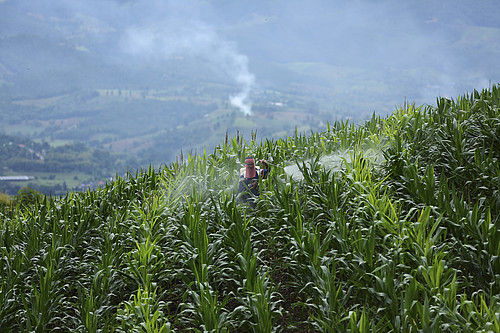 Thailand's food system is now becoming more centralized and monopolized, affecting food security, food justice (rights to food) and the socio-environment.
Thailand's food system is now becoming more centralized and monopolized, affecting food security, food justice (rights to food) and the socio-environment.Given the significance and complexity of crop production, these monocrops involve a broad range of food supply chain stakeholders, such as farmers, livestock producers and traders; contributing towards higher risk across the management of processes encompassing the “farm to fork” continuum.
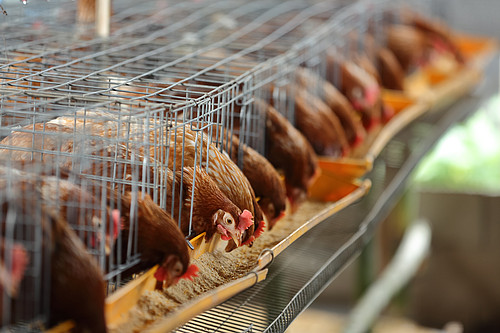
About the WWF-SCP Project
IKI-SCP Phase II
Thailand WWF Thailand has commenced a four-year project (2022-2026) project “IKI SCP Phase II Project on Establishing Sustainable Consumption and Production (SCP)”, through the support from International Climate Initiative (IKI), The Federal Ministry for the Environment, Nature Conservation, Nuclear Safety and Consumer Protection (BMUV). The project aims to reduce emissions and increase adaptation and resilience to climate change through the implementation of complementary interventions that focus on connecting sustainable production to consumption to transform elements and behaviours in the food system, the agri-food sector.
The WWF Thailand - IKI SCP project has been carried out through a set of activities in close collaborations with the Department of Environmental Quality and Promotion, the Ministry of Natural Resources and Environment, the National Science and Technology Development Agency, and the Ministry of Higher Education, Science, Research and Innovation. The project's outputs and deliverables include:
- Increased urban consumers' knowledge and awareness on the linkages between consumption choices and environmental impacts, which triggers action towards sustainable consumption patterns that are less damaging to the environment.
- Adoption of sustainable practices by key business actors within the sector, which leads to SCP implementations across the food, agricultural, and forestry value chains. This output must be delivered through at least three methodological tools – such as innovative business models; measures and guidelines of practices; and initiatives for low-carbon SCP – which are developed with participations from the target companies and relevant stakeholders. The developed tools must also be made publicly available, and made possible for interested parties to adopt into their operations.
- Adoption of SCP practices by governments and key value chain actors through collaborative mechanisms, prioritizing SCP, and systems-based approaches – such as nature-positive production and policy framework for SCP – which are necessary to transform harmful production practices.
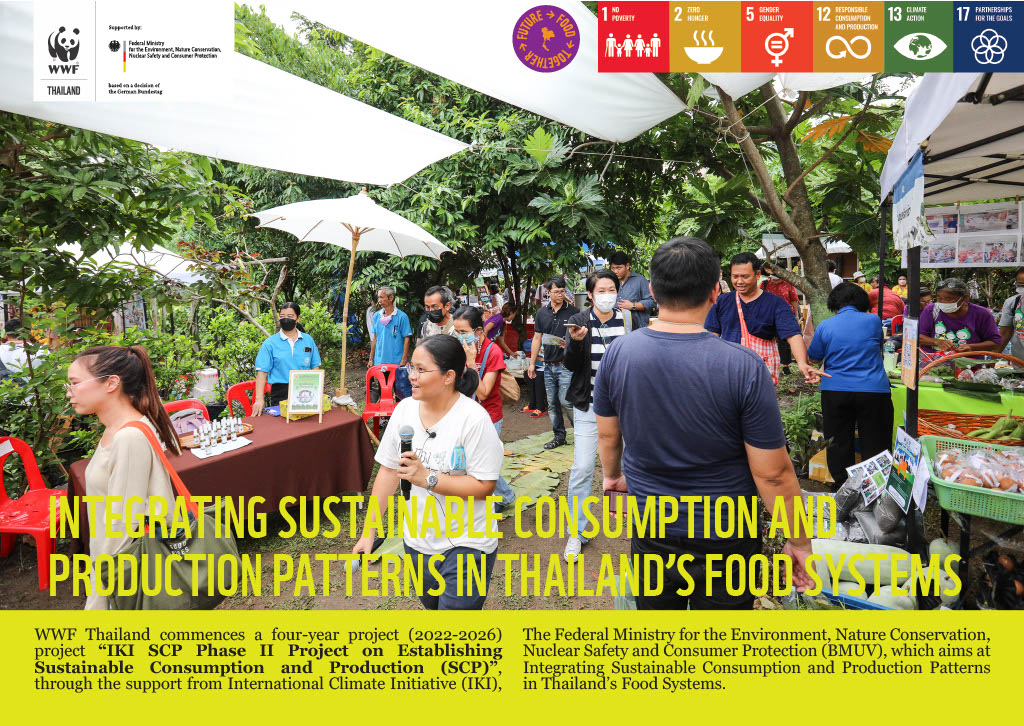
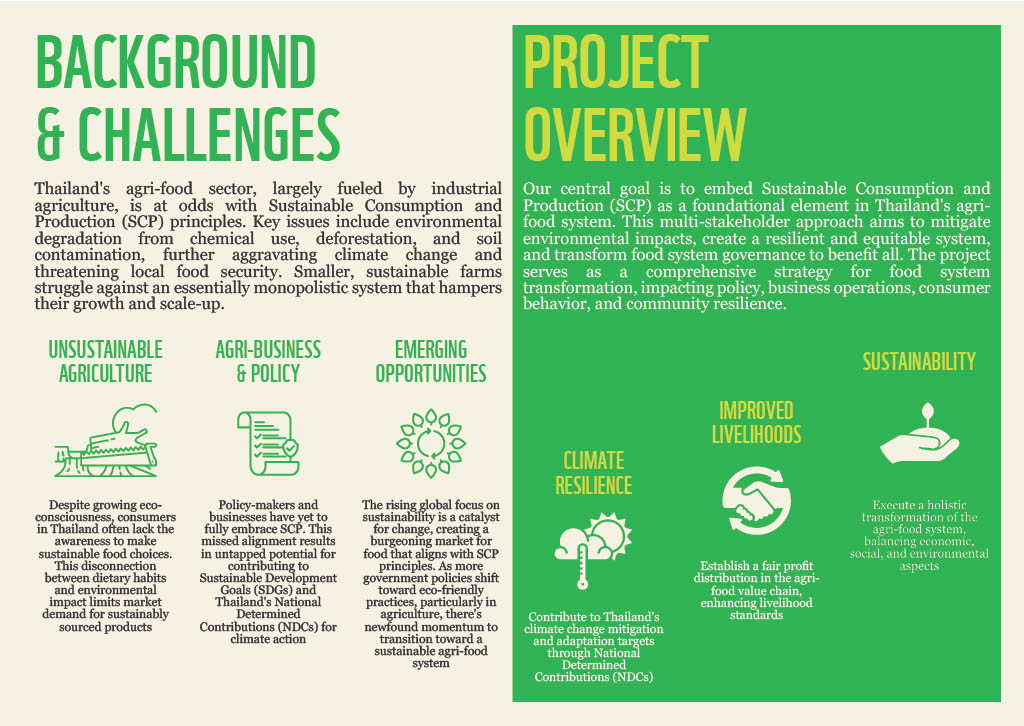
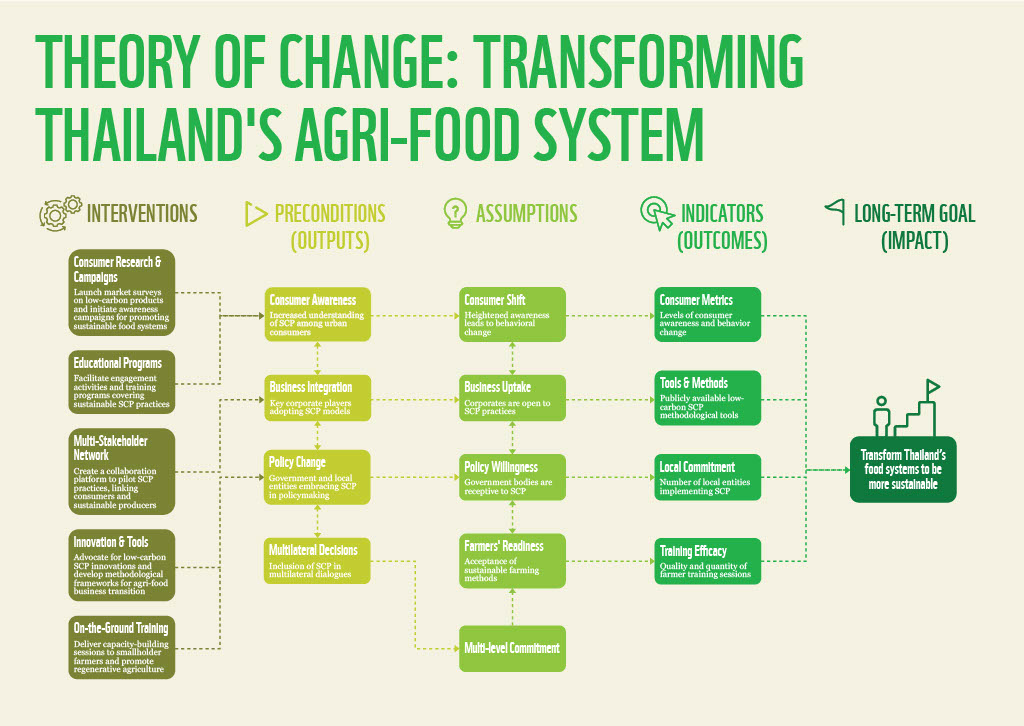
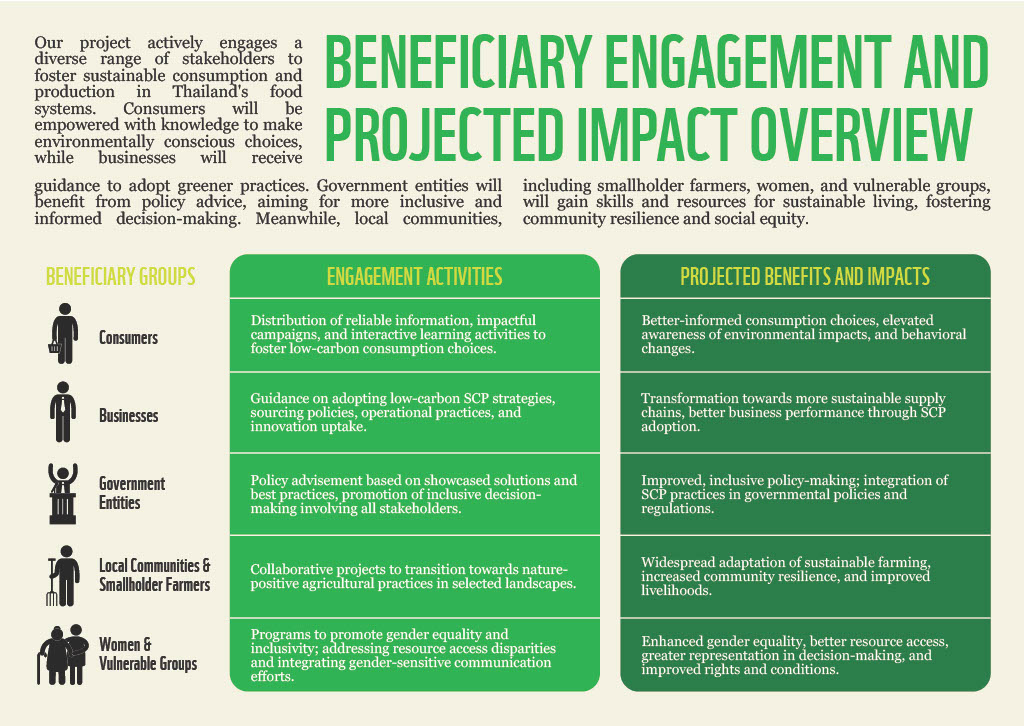
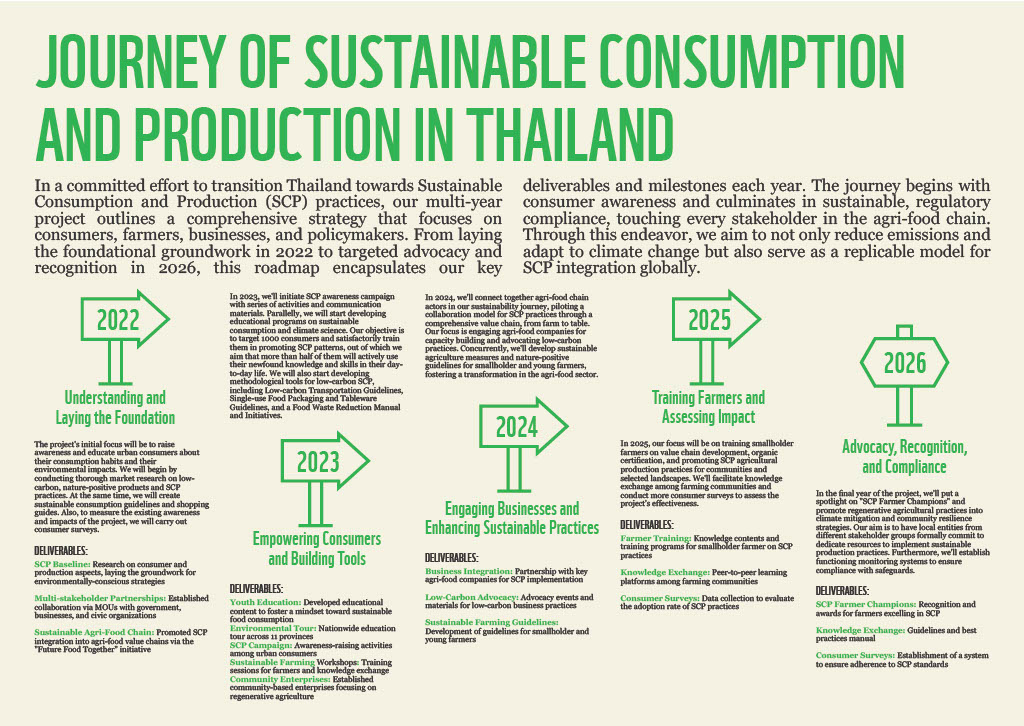
Download the Project's Phase II Factsheet
TOGETHER POSSIBLE
In the long run, the clearest and most important benefit of this project aims to 1) finding new alternative strategies to produce returns high enough to compensate local farmers for additional risks, 2) form partnerships between villagers to restore degraded agricultural and forest landscapes in retaining its rich resources, and 3) proposing strategies and measures, where all form of agricultural production are promoted towards sustainable manner. We know that one organisation alone can’t affect the change we need. That’s why we rely on partnerships and our supporters. The changes we want to see in the world can only come about through the efforts of many people - together possible.
About WWF-Thailand
World Wide Fund for Nature (formerly World Wildlife Fund) started operating in Thailand in 1995. Our mission is to ensure that there will be strong participation and support from all people to conserve the country’s rich biological diversity and increase the impact of its conservation action for a Living Planet.
WWF came into existence on 29 April 1961, when a small group of passionate and committed individuals signed a declaration that came to be known as the Morges Manifesto.
This apparently simple act laid the foundations for one what has grown into the world's largest independent conservation organization.
More than 50 years on, the black and white panda is a well-known household symbol in many countries. And the organization itself is lucky enough to have won the backing of more than 5 million people throughout the world, and can count the actions taken by people in support of its efforts into the billions.
WWF's mission is to stop the degradation of the planet's natural environment, and to build a future in which humans live in harmony with nature, by:
-
Conserving the world's biological diversity
-
Ensuring that the use of renewable natural resources is sustainable, and
-
Promoting the reduction of pollution and wasteful consumption
Click here for the WWF-Thailand website (ENG)
Click here for the WWF-Thailand website (TH)